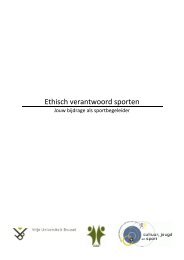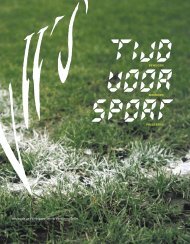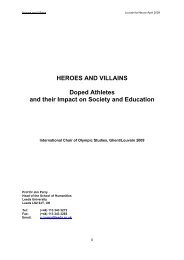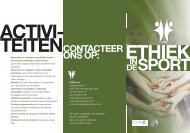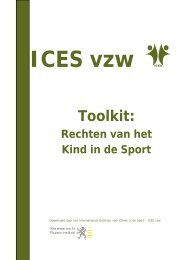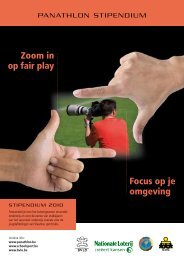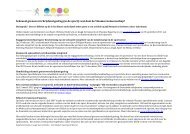Part 3 GLOBAL ISSUES: HARASSMENT AND ABUSE RESEARCH
Part 3 GLOBAL ISSUES: HARASSMENT AND ABUSE RESEARCH
Part 3 GLOBAL ISSUES: HARASSMENT AND ABUSE RESEARCH
You also want an ePaper? Increase the reach of your titles
YUMPU automatically turns print PDFs into web optimized ePapers that Google loves.
Research clearly indicates that relational athlete maltreatment remains<br />
a significant problem in sport. 5-11 To date, the experience of sexual abuse in<br />
sport has been the focus of most of this research, with emotional abuse<br />
receiving far less attention. As such, as series of studies were carried out on<br />
athletes’ experiences of relational abuse, specifically emotional abuse in<br />
sport. These studies are reviewed below.<br />
Research design<br />
In each of the studies, a qualitative research design was employed.<br />
Semi-structured interview were conducted with elite and sub-elite female<br />
athletes. 12 <strong>Part</strong>icipant samples ranged from 9-14 athletes. All athletes had<br />
competed previously at the junior national, senior national or international<br />
level. All athletes were from the individual sports of swimming and<br />
gymnastics, which comprise a young age of specialization and athlete<br />
maturation. Semi-structured interviews were conducted individually with each<br />
athlete. Interviews were then digitally recorded and transcribed verbatim, and<br />
data were analyzed inductively using open, axial, and selective coding<br />
techniques.<br />
Key findings<br />
Power of the coach<br />
The coach has immense power over the athlete, power that often<br />
transcends to other areas of an athlete’s life, including academics, social life,<br />
and diet. The participants highlighted the specific aspects of their coaches’<br />
power that made them susceptible to experiences of physical, sexual, or<br />
emotional abuse, including the closeness of the relationship, the legitimate<br />
authority of the coach, the coach’s expertise and previous successes, and the<br />
coach’s ability to control access to the athletes. As a consequence of the<br />
coach’s power, the athletes expressed feelings of fear and often normalized<br />
abusive behaviours that occurred in the coach-athlete relationship. As well, in<br />
relation to the athletes’ vulnerability to abuse, the participants perceived their<br />
coaches’ power as inhibiting their ability to report incidences of abuse once<br />
they occurred.<br />
11



